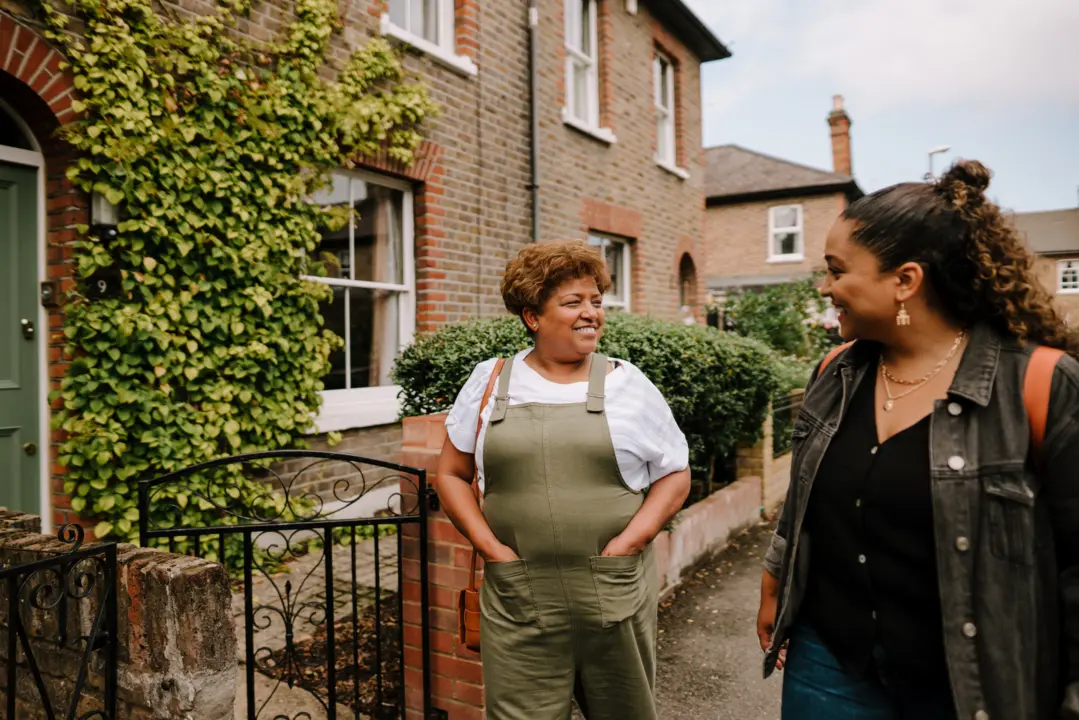Ways to feel less lonely and more socially connected

Do you feel uplifted when you exchange a smile with a stranger on the train? How about fleeting small talk about the weather with someone in the supermarket? Or maybe chatting to a dog walker in the park.
Building up your daily quota of what researchers call ‘weak ties’ can have a significant effect on our happiness and sense of belonging.
Weak ties are the people you know casually, such as acquaintances, colleagues, or people who work in your regular coffee stop. Strong ties refer to the people you know well, such as family and close friends. Both ties play an important role in your life. Your strong connections may feel precious because you have known them for longer, but this doesn’t make weak ties any less valuable. Plus, you never know when a weak tie might blossom into a strong one!
It is really helpful to understand that daily 'micro' moments that we have with other people in our lives - whether we know them well or not - have a huge positive impact on how content and connected we feel overall. You don’t have to wait for your social circle to grow, or your social calendar to fill. There are simple steps you can take today to feel less lonely and more connected.
Our Health and Wellbeing Officer, Rebekah Ballantyne, shares some great ideas for you to try when you next meet a new person, or spend time with someone you know well, to help you feel less lonely and more connected to others.
Daily conversation starters
Share a compliment
- If you're thinking something kind about someone, share it! For example, ‘I like your summery top’. It might feel a bit embarrassing or unfamiliar at first, but it is likely to make you both smile and might really brighten both of your days.
Show gratitude
- Say thank you and really mean it! Taking a moment to smile and share eye contact gives our brains a boost when we have micro-interactions like this.
Offer help
- If someone is struggling with something, eg, lifting a shopping bag, offer to help. They might decline, but you will feel good for offering, and your kindness will likely be paid forward.
Try to interrupt the usual 'how are you?' back and forth and ask something different. You could try:
- What's keeping you busy?
- Is your day going well?
- Anything interesting on today?
Call a friend or send a message to someone
You could just say you've been thinking of them. We often think about people in our lives, even when we've not seen or spoken to them in a while. Letting them know that they are in your mind can make you feel closer and more connected.
Find a common ground
See if you can find out something that you have in common with the person you're talking to. Examples could be
- Travel, food likes or dislikes
- Music tastes, events you've been to
- Childhood hobbies - the list goes on!
Ask questions
- Ask open-ended questions to spark conversation, like ‘Are you working on anything exciting at the moment?’ or ‘Do you have any nice holidays planned? ’ This encourages their brain to automatically search for 'excitement' or 'enjoyment' in their lives.
- Be sure to take time to really listen to the answer. What other questions could you ask to show you're interested? If you're not sure what to ask but you're keen to get to know them better, you can invite the person you're talking with to 'tell you more'.
Remember, you don't have to have the answers if someone tells you something and you don't know how to respond. In fact, most of the time people just need someone to nod, listen, and make them feel heard and less alone with their experience. Trying something different can feel scary and a bit uncomfortable, but stepping out of your comfort zone in social settings can have big payoffs for your relationships.
The good news is that the key to unlocking loneliness is in your hands!
Could you be a friendship caller?
If you love to chat and could provide a friendly ear to a lonely older person, why not volunteer? Find out more about becoming a Volunteer Caller.


